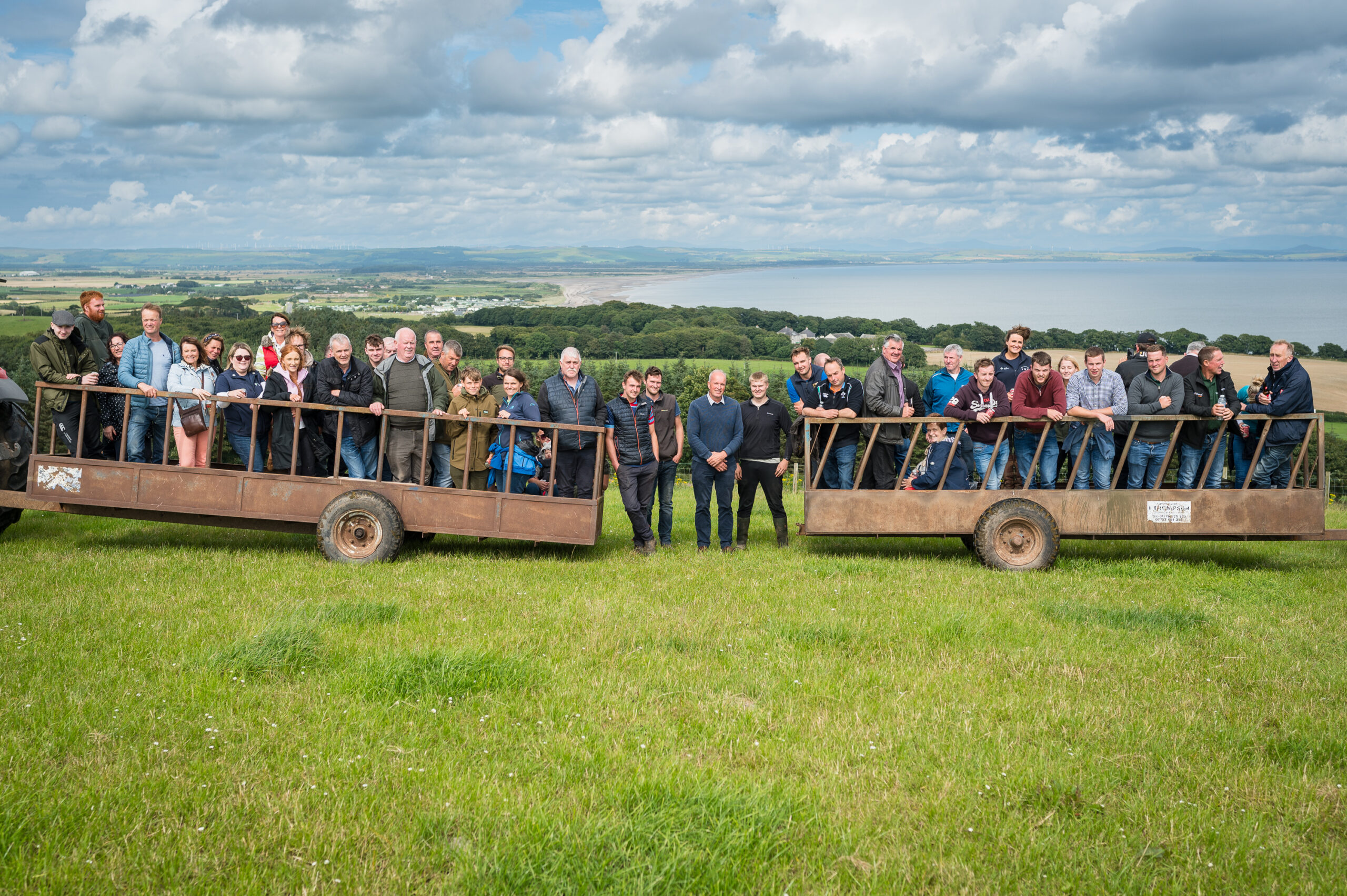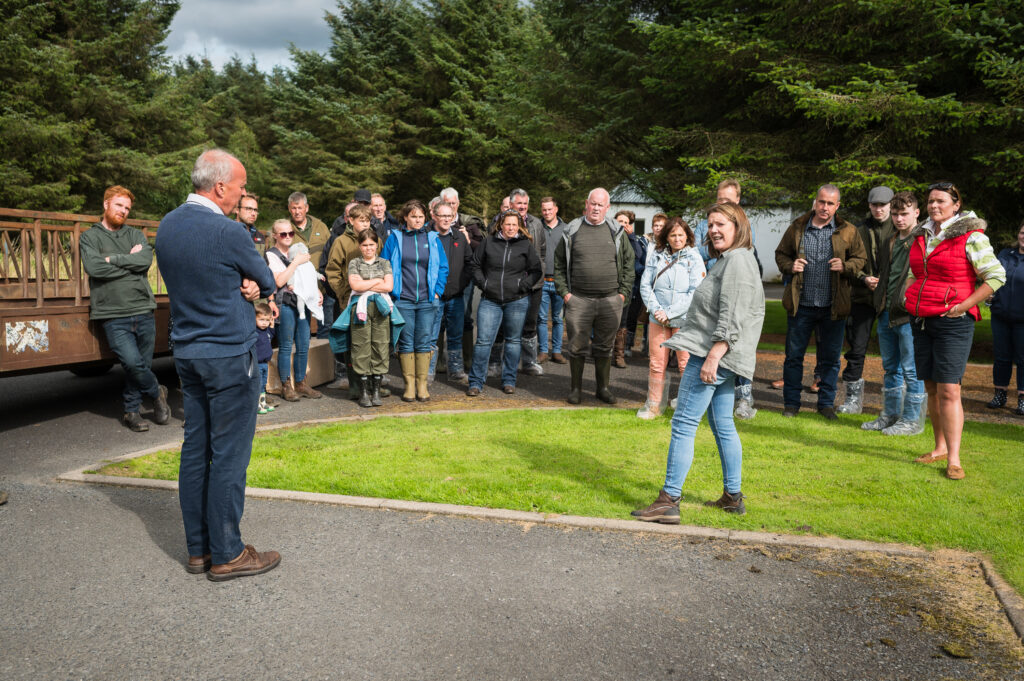Farmers gather in Stranraer to discuss thriving in times of uncertainty
August 2, 2023
The Royal Countryside Fund and Rural Support hosted a two-day event to bring farmers together with diversification high on the agenda.

Last week 26 farmers who took part in The Royal Countryside Fund’s Farm Resilience Programme in Northern Ireland set sail to Scotland and joined Scottish farmers for a two-day visit facilitated by Rural Support and RSABI. Through the Farm Resilience Programme, farming families have benefitted from free business and environmental management training delivered by expert consultants to help them manage their business more efficiently and improve resilience.
Three farms in the Dumfries & Galloway area hosted insightful introductions into their businesses, a tour of their farm and offered an opportunity for farmers to socialise, network and share ideas and challenges, something that too often goes amiss in what can be a solitary way of life.
With a host of challenges affecting the industry, from environmental factors, rising costs, and supply chain issues to name a few, the farmers were keen to hear how each of the farms were operating and diversifying their businesses.

Barbara Alcorn, Farm Support Coordinator for Rural Support commented: “This event completes our 2022/23 programme. We’ve had the chance to visit three farms and network with 33 different farmers, all from different enterprises. It has given them an opportunity to see what else is going on across the water. And it is important to get everyone together for networking as well and sharing best practices.”
The first farm on the schedule, run by the Galloway family gave an insight into diversifying into the glamping industry. The team have operated the Wigwam Holidays since 2020 with the aim of providing peaceful breaks in nature with sustainability as a focus. They run the successful enterprise along their key farming business.

At the second farm, John Service and his family introduced their farm, Balgreggan Farms, taking the group on a tour of their land which includes many environmental considerations, including solar panels – especially important to the family being part of the region’s Biosphere. Fairly new to the dairy industry, they have also diversified with an accessible cottage site for self-catering holidays.
Jackie Service, partner of the farm business said: “The Farm Resilience Program has very good focus on the areas of the farm that we need to develop, and also spread knowledge amongst our family. I think this program also helps people to realise that there is support out there that is help. And, what’s good is that everybody has had to sit around a table and talk amongst each other about the problems. There are quite a few families around here that have come to the meetings, and we would never have gone out and talked about it without having been on the programme.”
On the final morning of the trip, the group visited Gary Mitchell’s farm, West Galdenoch, to learn how he has developed the farm since taking over and how he made the move from beef to dairy farming. He now supplies to Arla and sits on their board, taking great interest in improving supply. He described to the group how he has a huge focus on feed and how it impacts fertility and how he consistently adapts his practice for efficiency.
The farmers visited provided very open and honest accounts of their successes and challenges faced together with their plans for the future. Aside from the on-farm learning, the group also benefitted from the social networking aspect with a social dinner followed by a Q&A session to recap the day and discuss further the topics covered, and a chance to thanks the hosts.
Keith Halstead, Executive Director of The Royal Countryside Fund said: “It is truly fantastic to see farmers getting together and socialising in this way. Farming can be a lonely business and the networking aspect of our resilience programmes is vital to the health and wellbeing of all involved.
“The Royal Countryside Fund wants to make a positive difference through helping those who live and work in the countryside, particularly the smaller family farms. Our transformational business training, our practical workshops on the environment and our bespoke support for farmers are needed now more than ever.”